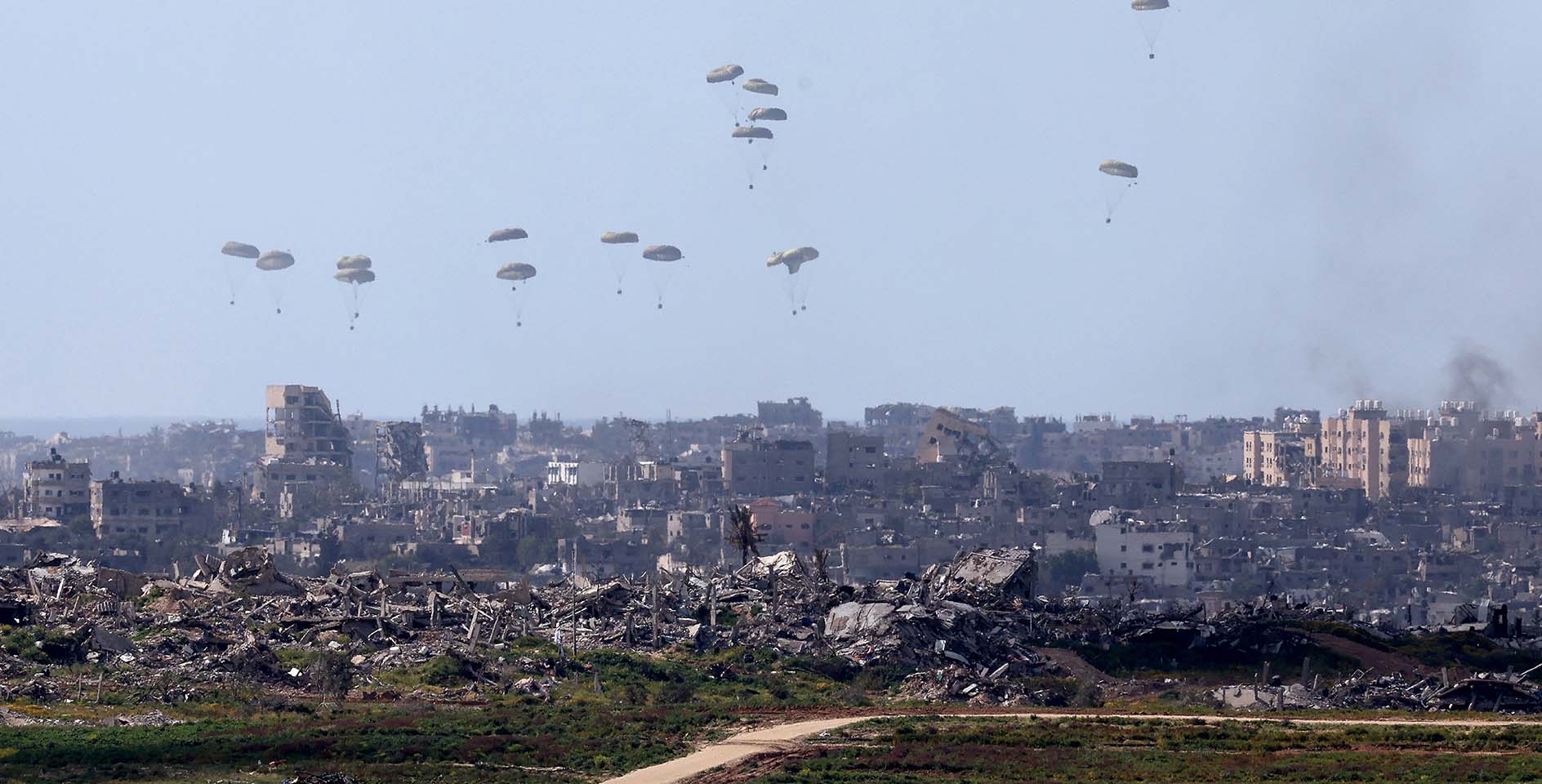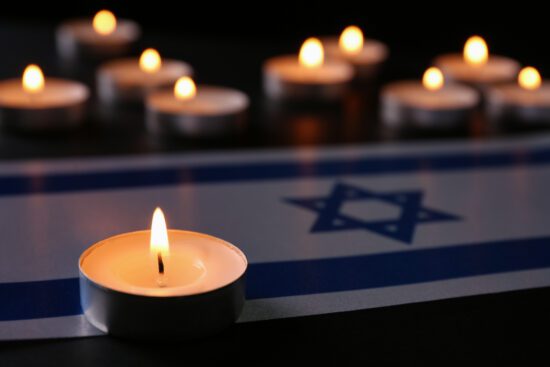Israel’s war with Hamas began on Oct. 7, 2023, when an attack on Israel by the Palestinian militant group marked a significant escalation in the long-standing conflict between the two groups. This attack was characterized by its scale and coordination, differing markedly from previous skirmishes or individual acts of aggression. As a result of these attacks, the Israeli military responded with air strikes and ground operations in Gaza.
Here is an update on what has recently happened in the war.
Ongoing military operations escalate in Israel’s war with Hamas
The ongoing military operations between Israel and Hamas have intensified with Israel conducting major bombing and ground campaigns in Gaza following deadly attacks by Hamas on Oct. 7. The Israeli Defense Forces (IDF) have expanded ground operations in the Gaza Strip, calling for evacuations in the northern region as they push into Gaza with tanks and troops.
These incursions have included localized raids, large-scale tank raids, and major ground incursions, leading to a near-total internet and cellular blackout in Gaza. The IDF’s actions have been met with vows of resistance from Hamas. The situation remains fluid, with Israel ramping up strikes and expanding ground operations while facing challenges in the conflict zone.
Israel’s overarching objective is:
- to dismantle Hamas’ control of Gaza to prevent future attacks,
- restore confidence in security,
- and ensure long-term stability in the region.
The strategy involves a combination of military actions, diplomatic efforts, and rebuilding initiatives to address the complex challenges posed by the conflict with Hamas in Gaza.
Cease-fire negotiations break down
For several weeks, the United States, Qatar, and Egypt have been engaged in negotiations to broker a deal between Hamas and Israel. This agreement proposes that Hamas would release approximately 40 hostages. In exchange, a six-week truce would be established, certain Palestinian prisoners would be freed, and there would be a significant increase in aid delivered to the geographically isolated region.
Despite these efforts, Hamas demands commitments for a more permanent cease-fire and a full Israeli withdrawal from Gaza for the release of all remaining hostages. But U.S. authorities have expressed doubts regarding Hamas’ genuine interest in reaching an agreement. Their skepticism stems from Hamas’ reluctance to comply with several requests that the U.S. and other nations consider reasonable. This includes the refusal to disclose the names of the hostages they propose to release.
The situation remains complex, with ongoing negotiations and tensions as both parties hold firm to their positions. The Islamic holy month of Ramadan, which started on March 10, has added pressure as it often sees heightened Israeli-Palestinian tensions over access to holy sites in Jerusalem. The talks are set to resume, but a truce before Ramadan failed to materialize.
Biden and Israeli Prime Minister Netanyahu have been engaged in heated debates over the issue of invading Rafah. Biden has warned against Israel attacking Rafah, considering it a “red line” (i.e., a point beyond which no further advance will be accepted) due to the potential humanitarian consequences. Despite this, Netanyahu has expressed his intention to proceed with the invasion, emphasizing the need to prevent future terror attacks like the one on Oct. 7.
The White House has clarified that Biden did not set explicit red lines but reiterated concerns about civilian casualties and the need for protections for those in Rafah. The rift between Biden and Netanyahu has raised questions about U.S. weapons support to Israel, with potential implications for arms usage restrictions if Israel proceeds with the Rafah operation.
The debates reflect a broader disagreement between the two leaders, with Biden criticizing Netanyahu for his handling of the conflict and emphasizing the importance of minimizing civilian casualties. Despite these tensions, the U.S. administration remains committed to supporting Israel while also advocating for humanitarian aid delivery into Gaza to address the escalating crisis.
U.N. finds ‘convincing’ information that hostages taken by Hamas faced sexual abuse
Recent reports from the United Nations have revealed “clear and convincing” evidence of sexual abuse against hostages in Gaza, with indications of ongoing sexual violence. The UN team found reasonable grounds to believe that conflict-related sexual violence, including rape and gang rape, occurred during Hamas’ Oct. 7 attack in Israel.
The report highlighted instances of various forms of conflict-related sexual violence against hostages taken to Gaza and suggested that such violence may still be ongoing. Despite Hamas denying these allegations, the UN report detailed incidents of rape, sexualized torture, and cruel treatment against captives. The findings underscore the urgent need for a cease-fire to protect those still in captivity and address the humanitarian crisis in the region.
Gaza in risk of famine
The Gaza Strip is facing a catastrophic-level food crisis with an increasing risk of famine, a widespread condition in which many people in a country or region are unable to access adequate food supplies.
Israeli airstrikes have destroyed vital food infrastructure like bakeries and flour mills, exacerbating the situation. Reports indicate that at least 576,000 people in Gaza, a quarter of the population, are one step away from famine, with aid trucks being looted and overwhelmed by hungry individuals. The dire conditions have led to severe food insecurity, with 1 in 6 children under the age of 2 in northern Gaza suffering from acute malnutrition and wasting
The World Food Programme (WFP) has warned that a famine is imminent in northern Gaza if critical food supplies cannot be brought in sufficient quantities due to ongoing hostilities and restrictions on aid deliveries. The UN and aid agencies are facing significant obstacles in providing essential supplies to Gaza, including crossing closures, restrictions on movement, and challenges in delivering aid due to unrest and damaged infrastructure.
U.S. plans to build for a sea port to deliver aid into Gaza
A new plan for a sea port to deliver aid into Gaza involves the construction of a temporary port on Gaza’s Mediterranean coast by the U.S. military. Biden announced this initiative during his State of the Union speech, aiming to facilitate the delivery of humanitarian aid by sea to Gaza. This initiative comes amidst challenges in aid delivery into Gaza due to bureaucratic obstacles and insecurity at land crossings, prompting a shift toward alternative routes like sea and air drops.
The operation will be based on the island of Cyprus and will not involve the deployment of U.S. military personnel in Gaza. U.S. officials will collaborate with U.N. and humanitarian aid organizations to distribute the aid. While the temporary port will initially be military-run, there are plans for it to transition into a commercially run facility in the future. The operation is set to take several weeks to plan and execute, with required U.S. forces already in the region or soon moving there.
Southern Baptists continue relief efforts in Israel’s war with Hamas
Southern Baptists, particularly through organizations like Send Relief, have been actively engaged in providing aid and relief efforts in the Israel-Hamas conflict. SBC involvement includes:
- offering temporary housing,
- setting up bomb shelters for protection,
- distributing medical supplies,
- ensuring access to food and water,
- and providing trauma counseling to those affected by the conflict.
Through decades-long partnerships with local Christians, churches, and ministries in Israel and the region, Southern Baptists have been able to collaborate effectively in delivering aid. Working closely with Baptist Village, they have provided refuge for hundreds of individuals in need of urgent assistance.
Currently, Send Relief has released funds to support Baptist representatives in their relief efforts and trauma-care initiatives for those affected by the conflict. Southern Baptists are urged to continue supporting these relief efforts through prayer and donations to Send Relief. Their focus remains on addressing the immediate needs of those impacted by the conflict and providing essential aid, support, and comfort during this challenging time in the region.
Additionally, Southern Baptists have been encouraging prayers for:
- survivors,
- injured individuals,
- displaced families,
- grieving loved ones,
- and for the successful delivery of essential resources to impacted areas.










